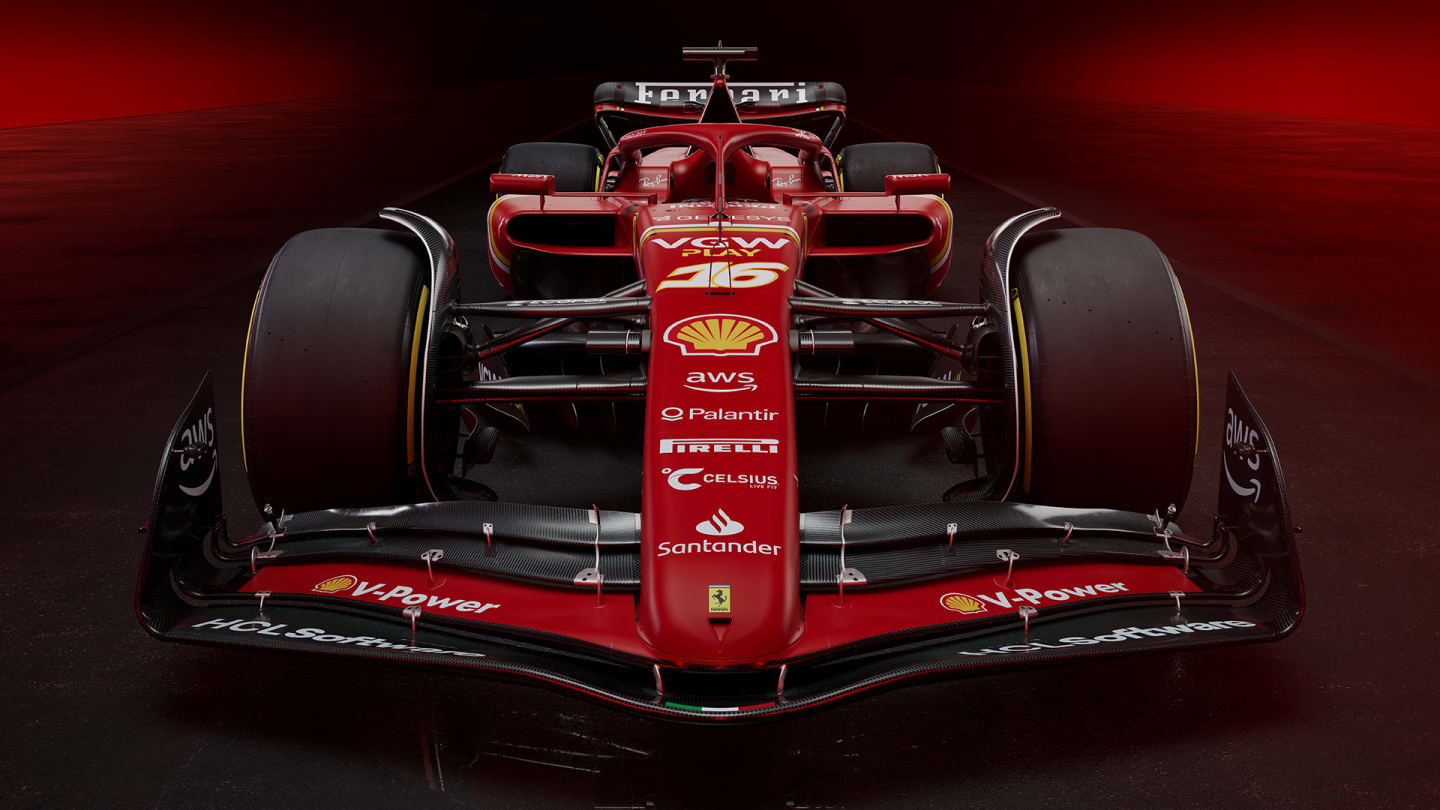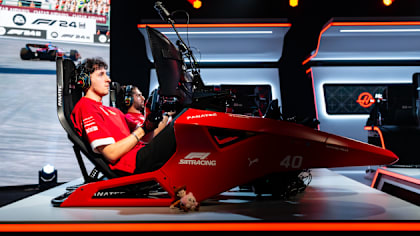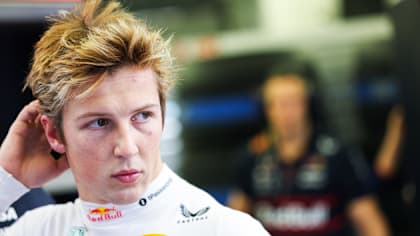)
Technical
TECH ANALYSIS: What’s new on Ferrari’s SF-24 with the 2024 challenger ‘a big departure’ from its predecessor

Share
)
Although Technical Director Enrique Cardile classifies the new Ferrari SF-24 as ‘a big departure’ from the 2022 and ’23 cars, there is much that looks very familiar.
The aerodynamic concept change, which is at the heart of Cardile’s statement is a move away from the out-washing sidepod fronts towards what has become a more conventional undercut style. This is just the visual giveaway of a change in how the underfloor flow is distributed.
FIRST LOOK: Ferrari unveil new SF-24 car ahead of the 2024 season
Moving the lower side impact bar down has allowed the front of the sidepod to be gouged out much more heavily than was the case last year.
The car has also acquired Red Bull-like lower lips ahead of the radiator inlets above the undercut to give a less aerodynamically disruptive route for the air spillage once the radiator inlet has been overwhelmed at speed.

The SF-24's nose is wide like last year's Ferrari
The sidepod ramps down in profile more than last year’s but it’s still quite a mild angle compared to other ’24 cars seen so far. There is also no discernible ‘water slide’ gulley in the top surface.
The nose is wide, like last year, and the car retains its previous push-rod front/pull-rod rear layout, though with a slight tweak of upper wishbone angles to enhance the anti-dive effect at the front and the anti-squat at the rear.
We understand that the gearbox casing has been shortened by around 5cm (and the chassis length increased by the same amount to retain the same overall length). This gives more volume around the diffuser for the aerodynamicists to exploit.
GALLERY: Check out every angle of Ferrari’s new F1 car, the SF-24
Together with the more heavily-undercut sidepod, the airflow along the floor edges and into the gap around the diffuser should be considerably boosted, thereby working the underfloor harder. This will all have implications for the optimum shaping of the channels within the underfloor.
Getting the airflow through these tunnels energised is the absolute key to performance, but that flow needs to be robust to still give good characteristics at high ride height/low speeds and at various angles of roll and pitch. Ferrari will be hoping this banishes the tendency of last year’s car to suffer a sudden loss of aero grip at the rear at high speeds, something which for much of the year made it a tricky car to drive on the limit.
)
The much-enhanced sidepod undercut which has been made possible by lowering the lower side-impact bar (2023 car on the left, 2024 on the right). This has helped Ferrari move away from the sidepod outwash aero concept.
Cardile emphasises that a lot of the emphasis with the SF-24 has been to give the drivers confidence. “We have taken on board what the drivers have told us and turned those ideas into engineering reality with the aim of giving them a car which is easier to drive and therefore easier to get the most out of and push to its limits.
“We did not set ourselves any design constraints other than delivering a strong and honest racing car which can reproduce on the race track what we see in the wind tunnel.”
This re-alignment of priorities was already underway in the latter part of last season and were responsible for the car’s improved late-season competitiveness. Those same priorities have however been built into this car and the move away from the out-washing aero philosophy should in theory make this easier to achieve.
AS IT HAPPENED – All the latest as Ferrari launch the new SF-24
YOU MIGHT ALSO LIKE
Video LIVESTREAM: Catch all the Round 12 action from the season finale of the 2025 F1 Sim Racing World Championship
News ‘It’s tough’ – Lawson shares first message after Red Bull seat swap with emotional social media post
News Alpine reserve Ryo Hirakawa to drive in FP1 at Japanese Grand Prix
News Formula 2 racer Victor Martins joins Williams Driver Academy




